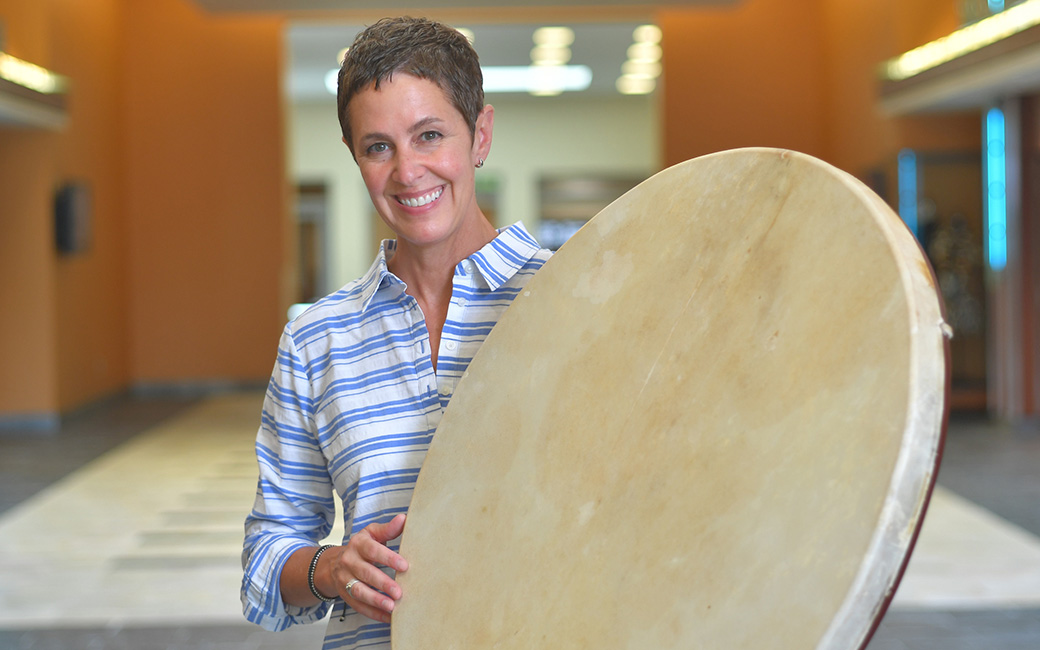Finding the Beat
Associate Professor Michelle Humphreys revives sounds hidden in history.

Specializing in early music percussion, Michelle Humphreys thinks of her work as musical forensics.
Composers before the 18th century, she explains, didn’t typically write percussion parts. But music historians know that percussion was present in performances. It’s up to Humphreys to uncover the clues that help her recreate sounds that have never been recorded. She does this by studying artwork and iconography from the Baroque era, which reveals instruments and playing techniques that were used.
“I just have to go in there and discover and create” says the assistant professor, who performs regularly with Tempesta di Mare in Philadelphia, and Opera Lafayette, the Washington Bach Consort and the National Cathedral Baroque Orchestra in Washington, D.C.
Plus, to authentically replicate the early music process, these internationally renowned groups generally proceed without a conductor, requiring a high level of non-verbal communication and connection with the other musicians.
“That’s one of the things that draws me in the most,” says Humphreys, who will spend part of the summer of 2023 performing at the prestigious Boston Early Music Festival, “because human interaction is what drives me.”
It also drives why she loves teaching in TU’s music department.
Humphreys approaches students mindful of the idea that, “you’re not really teaching music. You’re teaching people.”
That means spending time learning about each student’s relationship to music, how they got started, what it means in their families, where they’re coming from culturally.
She is also a dedicated mentor, working closely with students to explore career pathways and pairing them with professional opportunities.
“It’s a sacred responsibility when people turn their kids over to a university,” says the musician. “It serves everybody if we circle the wagons and they really know they have people they can turn to.”